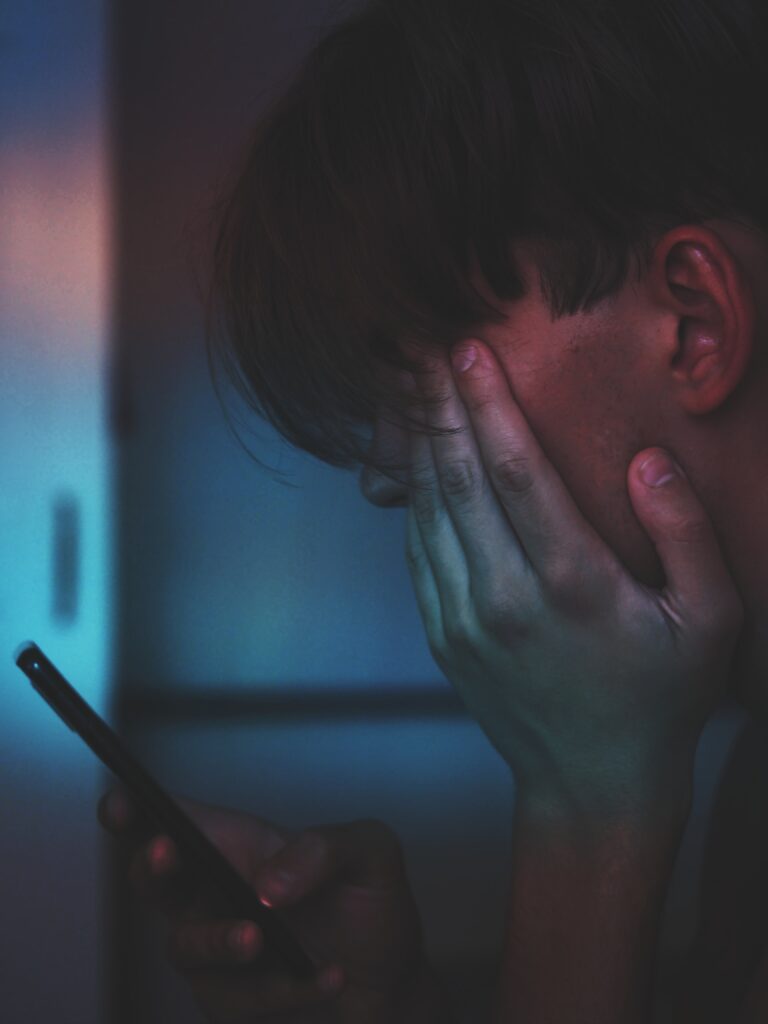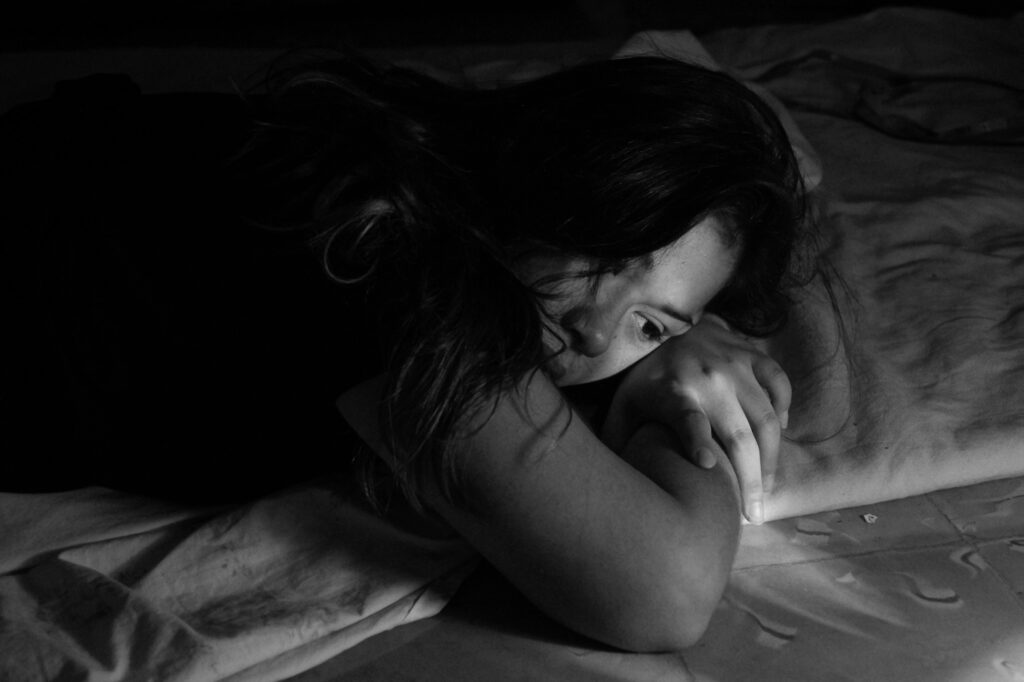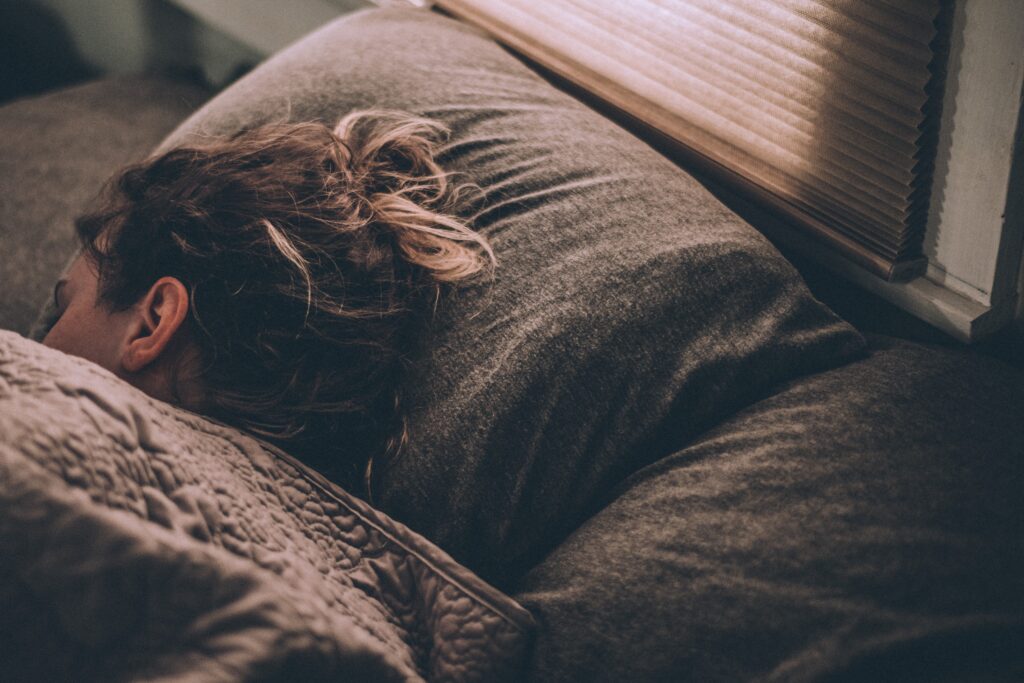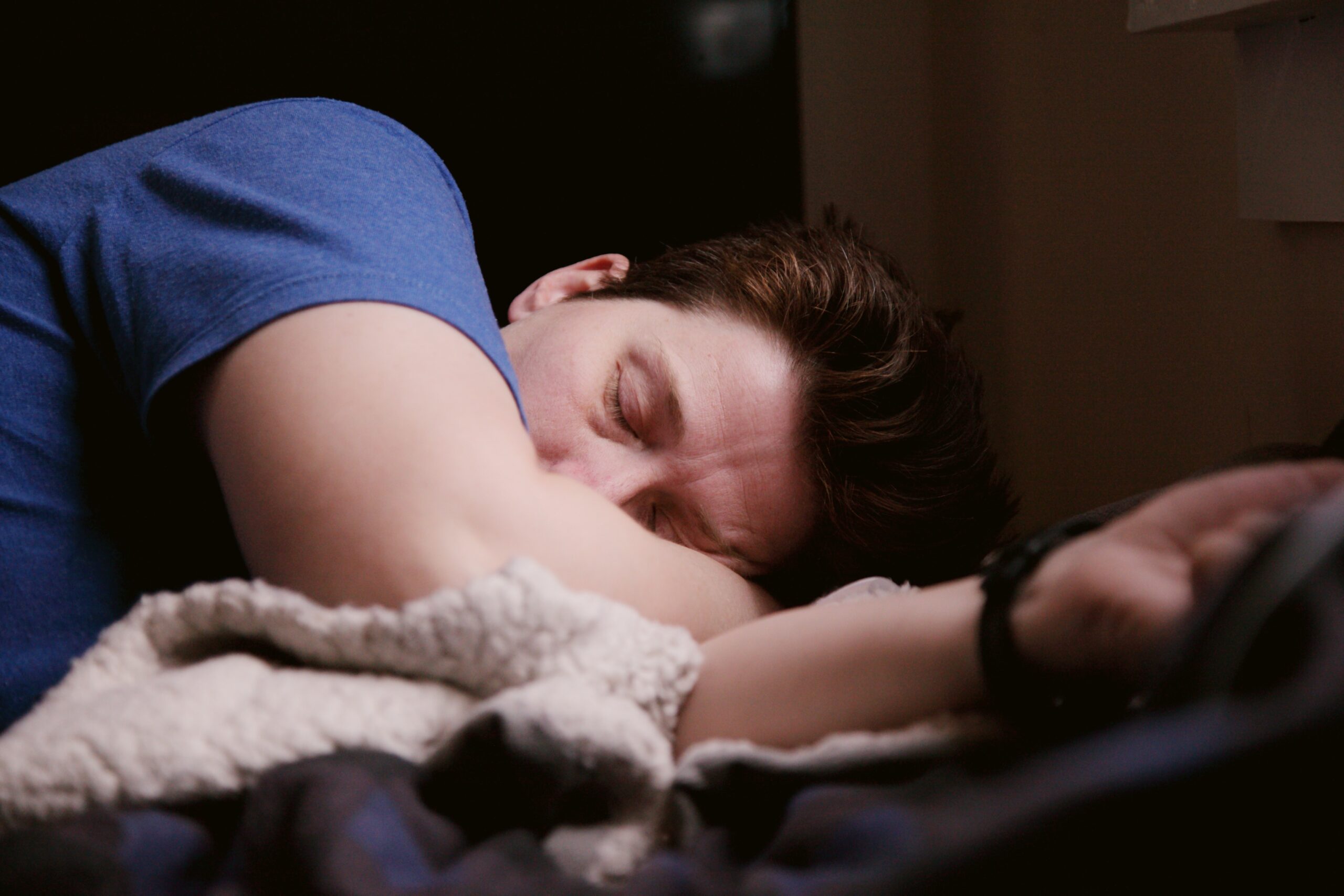This post may contain affiliate links, which means I’ll receive a commission if you purchase through my link at no extra cost. Please read the full disclosure here.
This post is about why your emotions are strongest at night.
Do you feel sad as soon as you go to bed at night? I don’t know about you, but I often find myself feeling really emotional as soon as I go to bed. And it’s not necessarily because of something that happened during the day. So why does it happen?
There are actually a lot of reasons why your emotions are so strong at night, and they have a lot to do with your brain chemistry.
As scientists learn more about the function of our brains and why we have different moods, it becomes clear as to why we have certain emotions running through our heads before we go to sleep. Following are some of those reasons and what you can do to get a better night’s sleep.
Why Emotions Are Strongest At Night

1. You are sleep deprived.
It’s normal to feel sad, anxious, or worried when we’re sleep deprived (or stressed), but why does this happen? Why do our brains go into overdrive as soon as we lay down?
One answer could be the hippocampus. This is a part of your brain that helps you learn new information while sleeping and is also responsible for regulating emotions.
When you are lacking in sleep, the hippocampus can not function well, which will lead to a deregulated emotional state, and you can find yourself on an emotional roller coaster ride.

Sleep deprivation also directly affects regions in the prefrontal cortex (PFC), which controls decision-making, problem-solving and exercising self-control. When these areas are affected by lack of sleep, you’re more likely to experience mood swings.

2. It’s when there are fewer distractions.
One reason your emotions are strongest at night is that you are not surrounded by the noise and chatter of everyone. Instead, you might alone or just with your partner.
A quieter time can mean that our brains will continue to process thoughts as they did during the day, however, the thoughts will be louder and even more intense.
I often come up with my most creative ideas just before I go to sleep. I want to get up and start working on my computer and these new ideas straight away. I get worried that I might forget them.
Sometimes, there are tasks that I did not get done throughout the day and these are heightened in my mind before I go to sleep. I have learnt to put some practices in place to help me with my work and creative ideas.
Here are four things I do consistently before bed to help switch off from work:
- Make a to-do list. There is always more work to be done.
- Keep a journal.
- Exercise self-compassion.
- Engage in physical activity.
- Practice meditation.

3. It’s when you’re feeling more stressed and overwhelmed.
You know how, when you’re stressed out or overwhelmed, you can’t seem to stop thinking about it? That’s because the part of brain that processes emotions is still active at night.
According to Dr Robert Stickgold, a sleep researcher at Harvard Medical School, our brains don’t have a “shut off” button. If something stressful happened during the day (like an argument with a friend), it’s still fresh in your mind at night.

“The brain is doing its nighttime job of finding connections, so when we wake up, we have a different take. It can feel like a stress, but rather than fight it, there are ways to accept the nightly review of the day so it doesn’t turn into a sleepless assessment of our entire lives.”
Dr Robert Stickgold
“It helps to acknowledge a thought and let it keep moving, similar to the practice of observing thoughts without judgment during meditation. There are a number of imagery devices that can work: having a ticker tape or balloon shuttle it away, or putting it on a tee and knocking it down the fairway. The main thing is to realize that the mere existence of the thought is not a problem.”
Dr Robert Stickgold
He goes on to discuss how to keep your thoughts moving:
I have used this practice many times before I go to sleep. Often if I have had a stressful experience or in argument with someone during the day, the conversation and will run over and over in my head, causing me more stress unable to relax.
Visualising the thoughts moving through my brain and then out of my brain, helps me to remove the toxic thoughts before bed.
I also like to picture my thoughts as deep breaths. For example, when I breathe in, I picture the colour blue. It helps me visualise positive thoughts; when I breathe out, I picture the colour red. I associate that red with all the negative thoughts or stresses leaving my breath and out of my body. Why not try this simple breathing technique tonight before you go to sleep?
If you need help with breathing techniques chat to a licensed therapist here.

To learn more about the brain/sleep connection go here.
4. Your brain is still going strong, and it doesn’t know when to stop working.
As you’re getting ready to go to bed, your brain is still going strong. This can happen because it doesn’t know when to stop working due to the light in the room. Our phone screen can emit a blue light which will make it harder to fall asleep and stay asleep.
The light stimulates our brain, which will make it think that it is daytime. This blue light making our brain think that it is daytime will mean that we want to do work, think of ideas, do activities and do anything that we would normally do during the day.
We need to get better at monitoring our devices and when we have them on and off and night. This will help with better sleep and stop us from sitting up and ruminating over negative thoughts from the day. We can then have better emotional health.
Although it is environmentally friendly, blue light can affect your sleep and potentially cause disease. Until the advent of artificial lighting, the sun was the major source of lighting, and people spent their evenings in (relative) darkness. Now, in much of the world, evenings are illuminated, and we take our easy access to all those lumens pretty much for granted.
But we may be paying a price for basking in all that light. At night, light throws the body’s biological clock—the circadian rhythm—out of whack. Sleep suffers. Worse, research shows that it may contribute to the causation of cancer, diabetes, heart disease, and obesity.
Harvard Health Publishing

Interference with Circadian Rhythm: Exposure to blue light suppresses the production of melatonin, a hormone that induces sleepiness. This is actually an advantage during the day because it keeps you feeling alert and refreshed. However, melatonin release in the evening helps you relax before bedtime. Suppression of melatonin can cause you to stay up later and sleep less than you normally would.
The Sleep Doctor
5. Changes in hormones.
Researchers believe that emotional mood swings at night may be related to changes in hormones associated with circadian rhythms, such as melatonin or cortisol. These two hormones are known for their sleep-promoting effects.
When there are changes in melatonin or cortisol, it can make you upset before you go to sleep, your emotions can get the better of you, and due to the changes in these hormones, you can feel sad and depressed, unable to fall asleep very easily.

Increased cortisol suppresses melatonin and dilutes adenosine – the molecule responsible for the sleep pressure that ‘tips you over the edge’ and into perfect slumber. The result is elevated arousal levels at bedtime, insomnia, fragmented sleep, and difficulty getting the much needed deep, restorative sleep.
sleepcycle.com
There are ways to improve your melatonin imbalance. Here are a few things that I do to help with this hormone and, in turn, help me get to sleep quickly!
- Relax in a nice hot bath.
- Eat food that is rich in melatonin, such as tomatoes, pineapple, broccoli and cucumber.
- Get some sun on my face (sunshine each day helps with melatonin production).

I hope this post has given you a better idea of why your emotions are so strong at night, and how you can deal with them. I have always been a night owl and have always had trouble falling to sleep. These strategies that I have discussed today are ones that I now frequently put into place each day.
Getting enough sleep can improve our emotional state and influence how we feel the following day. It’s important to remember to do what you can to establish habits that help you unwind and get ready for a good night’s rest.
Whether that’s avoiding stressful situations before bed, turning off your devices or getting your hormones checked and in balance, try to put these tips into practice to help cope with those late-night emotions.
If you are experiencing ongoing concerns around your health or sleep, please speak with a medical professional today. After all, each of us deserves to get a good quality night’s sleep.
This post was all about why your emotions are strongest at night.

